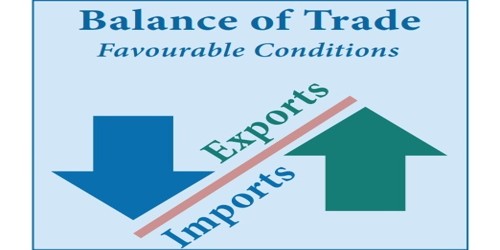
If you're like most people, achieving financial stability and security is likely one of your top priorities. However, navigating the complex world of personal finance can be challenging, especially if you're unfamiliar with financial planning, budgeting, and investing. Fortunately, with the right strategies and techniques, you can overcome financial obstacles and build resilience in your personal finance journey.
In this section, we'll explore the importance of personal finance, financial planning, and budgeting. We'll also discuss various strategies for saving money, investing, and planning for retirement, as well as techniques for managing debt and improving your credit score. Our goal is to provide you with a comprehensive overview of the key elements of personal finance resilience.
Key Takeaways:
- Personal finance resilience is crucial for long-term financial success.
- Financial planning and budgeting are essential tools for achieving your financial goals.
- Saving money and investing can help you grow and protect your wealth.
- Planning for retirement and managing debt are key components of personal finance resilience.
- Improving your credit score can enhance your financial well-being and open up new opportunities for you.
Understanding the Importance of Financial Planning
Financial planning is the foundation of any successful personal finance journey. It involves creating a roadmap for your financial future that takes into account your income, expenses, savings, and investments. By having a solid financial plan, you can achieve your financial goals and build a sustainable future.
There are three key components of financial planning – budgeting, saving money, and investing. Budgeting involves creating a plan for your income and expenses, allowing you to manage your money effectively and avoid overspending. Saving money is important for building an emergency fund, preparing for unexpected expenses, and achieving long-term financial goals. Investing involves making strategic decisions about how to grow your wealth over time, taking into account your risk tolerance and financial goals.
The Importance of Budgeting
Budgeting is an essential part of financial planning. It involves tracking your income and expenses and creating a plan for managing your money effectively. By budgeting, you can identify areas where you can reduce your spending and save money for the future.
To create a budget, start by tracking your income and expenses for a few months. This will give you a clear picture of your spending habits and help you identify areas where you can cut back. Next, create a plan for allocating your income towards different expenses, such as housing, transportation, food, and entertainment. Make sure to set aside money for savings and investments as well.
Remember, budgeting is not a one-time event – it’s an ongoing process. Review your budget regularly and make adjustments as needed to ensure that you are staying on track towards your financial goals.
The Importance of Saving Money
Saving money is critical for building financial resilience and achieving long-term financial goals. By saving money, you can create an emergency fund, prepare for unexpected expenses, and invest in your future.
To start saving money, create a plan for setting aside a portion of your income each month towards your savings goals. Consider automating your savings to make the process easier and more consistent. Identify areas where you can reduce your expenses to free up more money for savings. Over time, your savings will grow, providing you with a sense of financial security and the ability to achieve your dreams.
Conclusion
Financial planning is essential for achieving long-term financial success. By creating a budget, saving money, and making strategic investments, you can build resilience and achieve your financial goals. Remember, financial planning is an ongoing process – make sure to review your plan regularly and make adjustments as needed to ensure that you are on track towards your goals.
Smart Strategies for Effective Budgeting

Creating a budget is the first step toward achieving your financial goals. A budget helps you understand where your money is going and how to save more effectively. Below are some smart strategies for budgeting and saving money.
Track Your Expenses
The first step in effective budgeting is to track your expenses. This means monitoring every dollar you spend, from your morning coffee to your monthly rent or mortgage payment. You can use a spreadsheet, a budgeting app, or even pen and paper to keep track of your expenses. By doing this, you can gain a better understanding of your spending habits and identify areas where you can cut back.
Set Financial Goals
Another important strategy for effective budgeting is to set financial goals. Whether you're saving for a down payment on a house or trying to pay off credit card debt, having specific goals in mind can help you stay motivated and on track. Make sure your goals are realistic and achievable. You can break them down into short-term (less than a year), mid-term (1-5 years), and long-term (more than 5 years) goals.
Make Strategic Spending Decisions
Creating a budget doesn't mean you have to stop spending money altogether. It's important to make strategic spending decisions that align with your financial goals. For example, you might choose to cut back on dining out or entertainment expenses so you can save more for a vacation or retirement. Or, you might decide to invest in a high-quality piece of furniture that will last for years instead of buying a cheaper, lower-quality item that will need to be replaced in a few months.
Use Technology to Your Advantage
There are many budgeting apps and online tools available to help you track your expenses and save money. Some apps will even analyze your spending habits and suggest areas where you can cut back. You can also take advantage of online banking tools to set up automatic transfers to your savings account or pay bills automatically.
Conclusion
Budgeting and saving money are essential components of long-term financial success. By tracking your expenses, setting financial goals, making strategic spending decisions, and using technology to your advantage, you can create a budget that works for your lifestyle and helps you achieve your financial goals.
Building a Strong Foundation for Savings
Having a strong foundation for savings is an essential part of achieving financial resilience. It allows you to weather unexpected expenses, take advantage of opportunities, and achieve your long-term financial goals. Here are some practical tips and techniques to help you build a strong foundation for savings:
1. Establish An Emergency Fund
Creating an emergency fund is a crucial step towards financial security. An emergency fund is designed to cover unexpected expenses such as medical bills, car repairs, or job loss. Experts recommend keeping at least three to six months’ worth of living expenses in your emergency fund. You can establish an emergency fund by opening a separate savings account and depositing a fixed amount of money each month or whenever you can.
2. Automate Your Savings
Automating your savings is an effective way to build a strong foundation for savings. You can set up automatic transfers from your checking account to your savings account each month. This ensures that you are consistently saving money and making progress towards your financial goals.
3. Prioritize Your Savings Goals
It’s important to prioritize your savings goals to make the most of your savings. Create a list of your financial goals such as buying a home, starting a business, or saving for retirement. Assign a timeframe and target amount for each goal, and then prioritize them based on their importance and urgency. This will help you focus on the most important goals and avoid getting sidetracked.
4. Develop Healthy Financial Habits
Developing healthy financial habits is essential for building a strong foundation for savings. This includes creating and sticking to a budget, avoiding impulse purchases, and living within your means. It also means being conscious of your financial decisions and making strategic choices that will benefit you in the long run.
5. Invest Your Savings Wisely
Investing your savings wisely is an important part of building a strong foundation for savings. Be sure to research different investment options and consider working with a financial advisor to help you make informed decisions. As you build your savings, you can also consider investing in stocks, bonds, mutual funds, or real estate.
Navigating the World of Investments

Investing can be overwhelming, but it's an essential part of long-term financial planning. Here are some key strategies to consider as you navigate the world of investments.
Diversify Your Portfolio
One of the most important principles of investing is diversification. This means spreading your money across different asset classes, such as stocks, bonds, and real estate, to minimize risk and maximize returns. Consider investing in mutual funds or exchange-traded funds (ETFs) that provide exposure to a range of different investments.
Assess Your Risk Tolerance
When investing, it's important to assess your risk tolerance, or your ability to handle fluctuations in the market. This will help you determine the right mix of investments for your portfolio. Younger investors with a longer time horizon may be more willing to take on greater risk, whereas those closer to retirement may opt for a more conservative approach.
Make Informed Decisions
Before making any investment decisions, it's important to do your homework. Conduct research on the companies or funds you're considering, and consider seeking the advice of a financial advisor. Keep an eye on market trends and stay informed about economic developments that could impact your investments.
Monitor Your Portfolio
Regularly monitoring your portfolio can help you stay on top of performance and make any necessary adjustments. Consider revisiting your investment strategy on an annual basis or when significant life events occur, such as marriage, starting a family, or nearing retirement.
By following these strategies, you can make informed investment decisions that support your overall financial goals and help you achieve long-term financial success.
Planning for a Secure Retirement
Retirement planning is an essential part of financial planning, and it's never too early or too late to start. The key to successful retirement planning is setting realistic goals and developing a savings strategy that aligns with your lifestyle and income.
To begin with, estimate your retirement expenses, which may include living expenses, healthcare costs, and leisure activities. Determine your desired retirement age and the amount of retirement income you would like to receive. Then, consider your retirement income sources, such as Social Security benefits, pensions, and investments.
One of the most popular ways to save for retirement is through employer-sponsored retirement plans, such as 401(k)s or 403(b)s. These plans allow you to contribute pre-tax income, which can help reduce your tax burden and maximize your savings. Some employers may also offer matching contributions, which provide an additional incentive to contribute.
Diversifying Your Retirement Portfolio
When it comes to investing for retirement, it's important to diversify your portfolio to minimize risk and maximize returns. A well-diversified portfolio should include a mix of stocks, bonds, and other investment vehicles that align with your risk tolerance and financial goals.
The table below provides an example of a diversified portfolio allocation based on age and risk tolerance:
| Age | Stocks | Bonds | Cash and equivalents |
|---|---|---|---|
| 25-35 | 80% | 10% | 10% |
| 36-45 | 70% | 20% | 10% |
| 46-55 | 60% | 30% | 10% |
| 56-65 | 50% | 40% | 10% |
Keep in mind that this is only an example, and your ideal portfolio allocation may differ based on your specific circumstances. It's also important to regularly review and adjust your portfolio as your goals, risk tolerance, and market conditions change.
In conclusion, retirement planning requires careful consideration and planning, and it's essential to start early. By setting realistic goals, developing a savings strategy, and diversifying your portfolio, you can enjoy a secure and comfortable retirement.
Managing and Reducing Debt

Are you struggling with debt? It's a common problem, but there are effective strategies for managing and reducing your debt. In this section, we'll explore techniques for consolidating your debts, negotiating lower interest rates, and creating a debt repayment plan while maintaining financial planning.
Consolidating Debt
If you have multiple sources of debt, consolidating it into a single loan can be an effective solution. This involves taking out a loan to pay off all your other debts, leaving you with only one monthly payment to manage. This allows you to simplify your finances and potentially lower your interest rates, which can save you money over time.
Negotiating Lower Interest Rates
High-interest rates can make it difficult to pay off your debts, so it's worth considering negotiating with your lenders for lower rates. If you have a good credit score, you may be able to qualify for lower rates, especially if you're facing financial difficulties.
Creating a Debt Repayment Plan
To effectively manage your debts, it's essential to create a repayment plan that works for your budget. Start by listing all your outstanding debts and their interest rates. Then, prioritize your debts, focusing on paying off high-interest debts first. Consider making extra payments whenever possible and cutting back on expenses to free up more money to put toward debt repayment.
Remember, managing and reducing debt is an ongoing process that requires commitment and discipline. Stay motivated by keeping your financial goals in mind, and don't hesitate to seek help from a financial advisor or credit counselor if you're feeling overwhelmed.
The Importance of a Good Credit Score
Your credit score is a crucial aspect of your financial life. It is a numerical representation of your creditworthiness and is used by lenders, banks, and other financial institutions to determine your eligibility for loans, credit cards, and other financial products. A good credit score can open up opportunities, while a poor credit score can limit your financial options.
What Is a Credit Score?
A credit score is a three-digit number that ranges from 300 to 850. The higher your score, the better your creditworthiness. Your credit score is calculated based on your credit history and includes factors such as your payment history, amount of debt, length of credit history, and types of credit used.
A good credit score is generally considered to be above 700, while a score below 600 is a poor credit score that can make it difficult to qualify for loans and credit cards.
Why Is a Good Credit Score Important?
A good credit score is essential for obtaining loans and credit cards with favorable terms and interest rates. It can also impact your ability to secure insurance, rent an apartment, or even get a job.
With a good credit score, you may be able to:
- Qualify for mortgage loans with lower interest rates
- Secure credit cards with better rewards and lower interest rates
- Obtain personal loans and auto loans with more favorable terms
- Receive lower insurance premiums and deposits for utilities
How Can You Improve Your Credit Score?
Improving your credit score takes time and effort, but it is achievable with the right strategies.
Here are some tips for improving your credit score:
- Pay your bills on time: Late payments can negatively impact your credit score.
- Reduce credit card balances: High balances on credit cards can lower your credit score.
- Limit new credit inquiries: Applying for too much credit in a short time can lower your score.
- Monitor your credit report: Check your credit report regularly for errors or inaccuracies that could negatively impact your score.
- Utilize credit responsibly: Use credit cards and loans responsibly and avoid maxing out credit cards.
Conclusion
Your credit score is a crucial component of your financial life and can impact your ability to secure loans, credit cards, and other financial products. By understanding the importance of a good credit score and implementing strategies to maintain and improve it, you can enhance your financial well-being and resilience.
Conclusion
As we come to the end of this article, it's clear that personal finance resilience is crucial for long-term financial success. By implementing the strategies we've discussed, you can build a solid foundation for your financial future and navigate the ups and downs of the economy.
Key Takeaways
Remember these key takeaways:
- Financial planning: Creating a financial plan is the first step toward financial resilience. It involves creating a budget, reducing debt, saving money, and investing.
- Budgeting: Budgeting is essential to help you understand and manage your expenses. It also enables you to save money and reach your financial goals.
- Saving money: Having savings is crucial for emergencies and achieving long-term financial success. Automated savings plans and having an emergency fund can help you save more effectively.
- Investing: Investing can help grow your wealth over the long-term. Diversification, assessing risk, and making informed decisions are key factors to consider.
- Retirement planning: Planning for retirement is crucial for ensuring financial stability in your later years. Estimating expenses, choosing the right retirement accounts, and setting goals are important considerations.
- Debt management: Managing and reducing debt is essential for financial resilience. Techniques such as consolidation, negotiating lower interest rates, and creating repayment plans can help you take control of your debt.
- Credit score: Your credit score affects your financial life in many ways. Maintaining good credit habits, improving your score, and navigating the credit system effectively are important skills to have.
By using the strategies discussed in this article, you can take control of your personal finances and achieve greater financial resilience. Remember to stay informed and educated on personal finance topics, and make financial decisions that align with your goals and values. With these skills and knowledge, you can achieve long-term financial success and peace of mind.
FAQ
What is financial planning?
Financial planning is the process of setting goals, creating a budget, and making strategic financial decisions to achieve those goals.
Why is budgeting important?
Budgeting is important because it helps you track your expenses, manage your money effectively, and save for your financial goals.
How can I save money effectively?
To save money effectively, you can prioritize your savings goals, automate your savings, and cut down on unnecessary expenses.
What are some investment options?
Some investment options include stocks, bonds, mutual funds, real estate, and retirement accounts like 401(k)s and IRAs.
How do I plan for retirement?
Planning for retirement involves setting retirement goals, estimating future expenses, and choosing the right retirement accounts to save and invest in.
What strategies can I use to manage and reduce debt?
Strategies for managing and reducing debt include consolidating debt, negotiating lower interest rates, and creating a debt repayment plan.
Why is a good credit score important?
A good credit score is important because it can affect your ability to get approved for loans, rent an apartment, or secure favorable interest rates.








